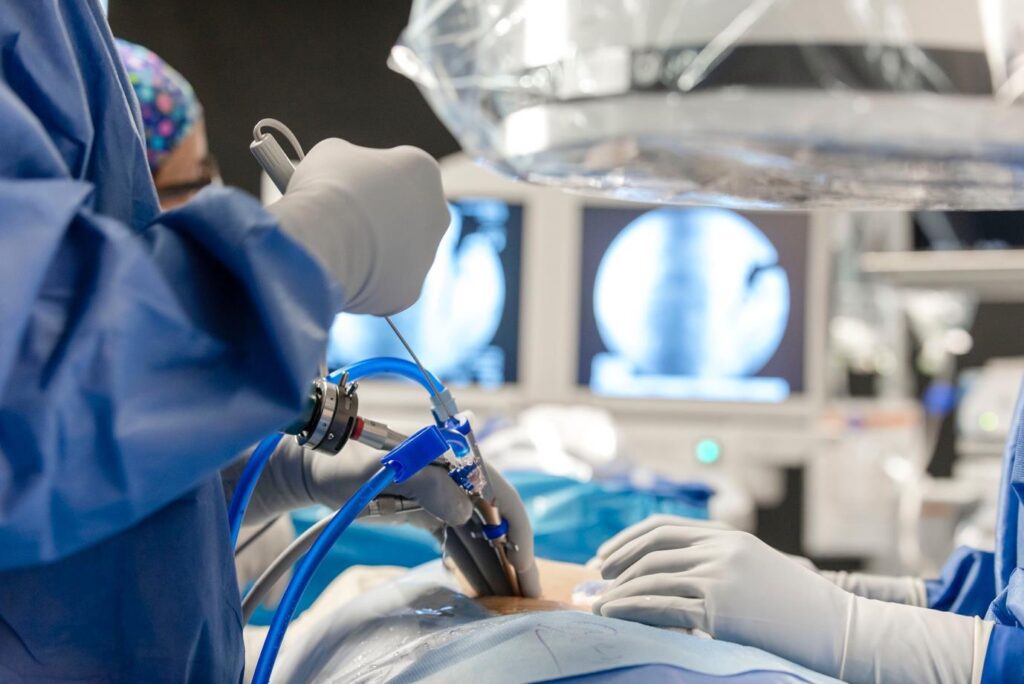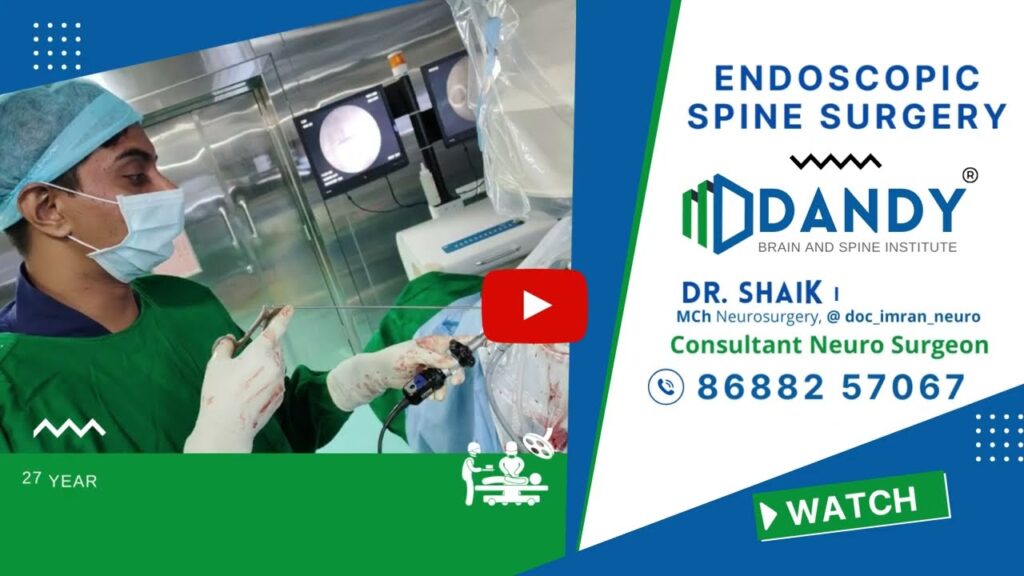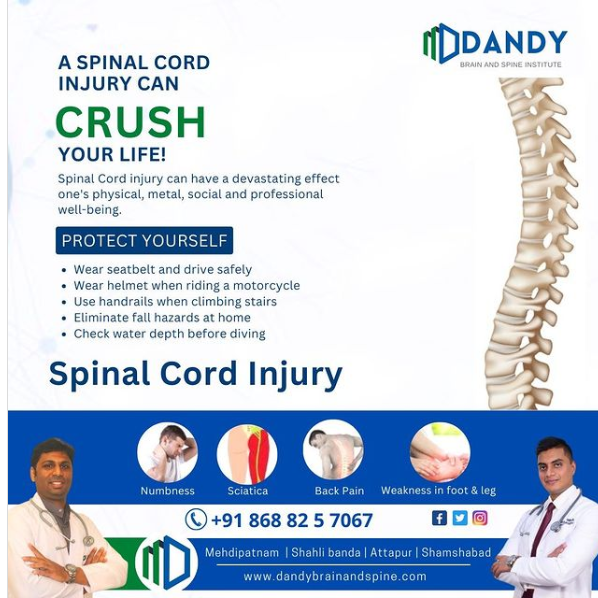About Dandy Brain And Spine Institute
What does Dandy Brain and Spine Institute Represent:
Established in the year 2021, Dandy Brain and Spine Institute have managed to create a niche in providing advanced medical care in the field of neurosciences. The Institute specializes in advanced neurology, neurosurgery, spine surgery. Our rehabilitation team offers post-surgical care and ensure your speedy and healthy recovery. With world-class infrastructure, a dedicated team of specialists, qualified and considerate staff, at Dandy Brain and Spine Institute you will not only get immediate medical attention but we will also make you feel at home. A smile on our patients faces is a reflection of our success.
What are the Treatments Available at Dandy Brain and Spine Institute:
Brain surgery at Dandy Brain and Spine Institute :

Dandy Brain and Spine Institute has the most innovative, engaging, experienced and committed neurosurgeon who provide exceptional outcomes to their patient’s. We are known for our pioneering approaches and breakthroughs in treatments, rooted in a supportive, team-oriented environment that encourages diverse viewpoints and collaboration. We use a multidisciplinary approach to provide a complete range of diagnostic, treatment, and rehabilitation services for patients with general neurological disorders affecting the brain and spine, including their supportive structures and vascular supply. We use both minimally invasive and traditional open neurosurgical techniques. Our neurosurgeons are also trained and equipped to handle emergency procedures. The most common conditions that we treat are: meningiomas, brain tumors, pituitary tumors, chiari malformations, and trigeminal neuralgia.
Spine surgery at Dandy Brain and Spine Institute:
Whenever possible, we at Dandy Brain and Spine Institute prefer to perform minimally invasive spine surgery rather than open procedures. Minimally invasive surgery uses smaller incisions, which minimizes the disruption to the spine and surrounding soft tissue, decreases muscle tearing and blood loss, reduces pain and risk, and speeds up recuperation. With minimally invasive spine surgery, we do not cut the muscles that overlay your spine but simply spread them out of the way and insert a small tube with endoscopes, intraoperative microscopes, and other specialized tools on the end. We use X-rays and computer navigation to help us see what is going on inside your body. When we finish the procedure, we remove the tube and your muscles return to their original position.
Degenerative spine/disc disease (DDD) involves degeneration of the discs, ligaments, and joints of your spine. Everyone experiences some change as we get older, but it becomes a concern when the symptoms interfere with your quality of life. It is the most common of all spine disorders. DDD can occur anywhere in your spine, but it is most common in the cervical spine (neck) and the lumbar spine (lower back). It can also cause pain, numbness, or weakness in your arms or legs. Risk factors for degenerative spine/disc disease include increased age, obesity, lack of exercise, trauma, family history, osteoporosis, and smoking.
To diagnose degenerative spine/disc disease, doctors at Dandy Brain and Spine Institute conduct a thorough physical examination. We may also order a diagnostic imaging test such as a magnetic resonance imaging, X-ray, or computed tomography scan. Our goal is to determine how quickly we need to react. Weakness is usually a sign of urgency while we can treat pain and numbness with more conservative measures.
While some spinal degeneration occurs with normal aging, it does not always cause symptoms. The best way to prevent symptoms is to maintain a healthy, active lifestyle, perform weight-bearing exercises to maintain strong bones, and avoid smoking.
Spine Trauma management at Dandy Brain and Spine Institute :
Trauma refers to an injury caused by a blow to the body. Spinal trauma is usually caused by motor vehicle collisions and falls, often from a great height. It usually produces pain in the back or neck; pain, weakness, or numbness in an arm or leg; and paralysis. Fractures, dislocations, deformity, or spinal cord injury also occur commonly with spinal trauma. Less common are spinal instability, a structural weakening of the spine, and neurological disability.
Risk factors for spinal trauma are high-speed motor vehicle collisions, falls, advanced age, and osteoporosis. As a result, young adults and the elderly are the most frequently affected by spinal trauma. If you already have a spinal tumor or osteoporosis, minor blows to the spine can further weaken your bones.
At Dandy Brain and Spine Institute, all patients with spinal trauma undergo a thorough physical examination, including all organ systems by a multidisciplinary team of trauma specialists. We may also conduct imaging scans such as X-rays, a CT scan, or an magnetic resonance imaging (MRI). Our goal is to determine whether you have a complete or incomplete spinal cord injury.
At Dandy Brain and Spine Institute we use this information to develop a treatment plan specific to your needs. If you are stable enough for spinal treatment, we will determine whether decompression, fusion, or bracing is appropriate. Decompression involves removing any bone, disc, or a blood clot that is pushing on a nerve or the spinal cord. Fusion includes stabilizing the bones of your spine (vertebrae) that are structurally weak or have too much abnormal motion. Usually, we implant titanium rods and screws into your back. We can do either of these procedures through traditional “open” surgery or a minimally invasive procedure.
best neurologist in India Dandy Brain And Spine Institute





